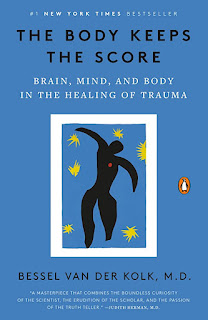‼️ The Power of Language: How the Codes We Use to Think, Speak, and Live Transform Our Minds by Viorica Marian‼️
69/∞
🔑 Key Words: #Languages #LanguageLearning #Multilingualism #Monolingalism
👉 Buy this book! 👈 through my link and help me build this website! 😊
Rating: ⭐️⭐️⭐️ (3 out of 5) (not great, not terrible)
📚 Length: 288 pages
🔊Audiobook: 8 hrs and 12 min
Why you should read this book?
💡To see how multilingualism benefits your brain and personality.
💡To get rid off of the myth that you can learn a language only up to a certain age.
💡To see what tricks multilingual brain can pull.
What drove me to read this book was pure curiosity. I wanted to see how knowing three languages benefits your brain. As expected, there are many advantages to multilingualism.
Being multilingual helps to postpone Alzheimer’s disease at least by 5 years. It turned out that using multiple languages gets your brain just right amount of exercise to it needs to keep fit for longer periods of time. But this si just the beginning.
Knowing at least 2 languages is standard, not an exception on our planet.
…
In this review I will use and apply my own knowledge from learning 2 additional languages. The concepts in this book were very similar, but applied manily to Russian, Romanian, English, French, Chinese and Spanish (the languages the author of this book speaks).
What I found interesting is that we tend to associate the time we learn the language with the emotions we were experiencing back then. I my case, I have learnt English predominantly in stressful and bigotry environment of not so openminded Britons, who preferred to look for differences rather than for similarities. When I learnt German (by that I mean properly) I was able to do that in stable and calm environment of Universität Bayreuth in Bavaria.
Some suggestions also say that we tend to be mor rational when using our non-native language. I have heart this idea before, although looking on my own personal experience, I am not sure, if I can entirely agree with it. But what I feel when speaking German is the bigger distance. In German, there is less 'I feel’ like in English and more of the passive form. In the other words, German is structured in the way, you can distance yourself from rour actions. Consequently, you feel less emotional involved when speaking German.
The theory I find interesting is the claim that we all tend to be the most emotional in our native language. I might agree with this one actually.
To know another language is to live another life. People tend to switch their personalities when talking another language and act in alignment of permissible cultural norms.
Similar sounds. There was an American who laughed at the word 'most.' Most (the bridge in Czech language) and most (as a measure of quantity in English). Both words are written the same. The intonation when pronouncing both words is quite different. Multilinguals excel at distinguishing what is important and what is irrelevant when it comes to languages. This apples to the sound, gestures and so on. The multilingual brain also tends to 'optimise' the energy spent on such tasks and over time deploys less energy in doing so than at the beginning when the language is new.
Another thing I have observed is that children up to the certain age can say any word without an accent. It is only later on when the synapses of their mother thong solidify when a person starts to hear the other language though their primary pattern of their mother thong. This does not apply, if a child was exposed to multiple languages when growing up. In that case, the structure of synapses in their brains could be truly bilingual.
When it comes to bilingually, it often depends, if both languages were encouraged or discouraged when learning them. For example, second languages in the USA are not always desired as parents want their children to become 'American' and get rid off the immigrant label.
Finally, language can be learnt at any age. The truth is that the accent and the structure will be taken from the primary language, but it does not mean it is impossible.
Kaiser’s Verdict: ⭐️⭐️⭐️ (3 out of 5) (not great, not terrible)
The book is really easy to read. It is not filled with complicated terminology and concepts. I see it more as a sum up of many different researches done in this area. In my own opinion is the book a bit shallow, unless it will be your very first book on multilingualism.
The author speaks about her Russian/Romanian experience. Although she has a few straight to the point personal experiences, I do not agree that everything she mentions must be interpreted in the way she sees it. I did too work as a translator and interpreter in the Republic of Ireland and some of my experiences and the consequent interpretation of these events differ.
👉 Buy this book! 👈 through my link and help me build this website! 😊
Feel free to like, share and comment or recommend books/courses you find inspirational yourself. I’m keen to hear about them.
Peace 🧘♂️✌️🌱
Coming Up Next:
TBC









Comments
Post a Comment